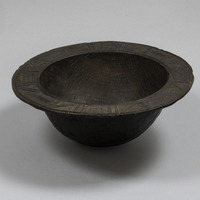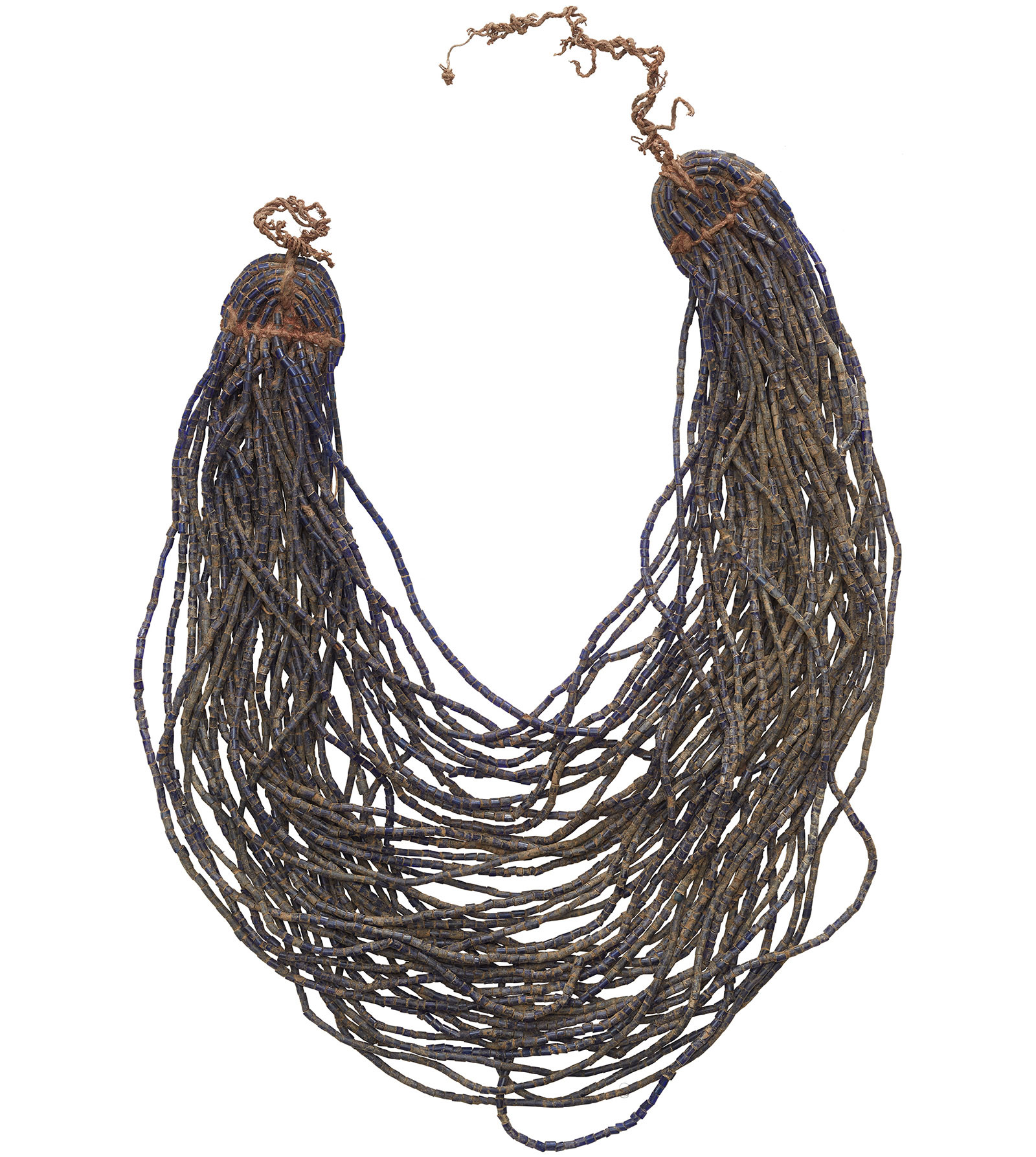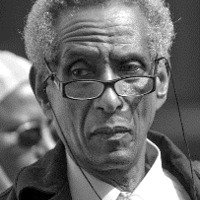The Role of Women in the Mahdist Period
Item
Title
The Role of Women in the Mahdist Period
Creator
Subject
Interview with Osman Nusari - Obviously women are under-represented in military displays, but can you say more about women in relation to the Mahdist army?
Description
Excerpt from interview with Osman Nusairi.
One can see the influence of women in the uniforms and clothing that is part of the military collection. The uniform worn by fighters was a jibba sewn together as a patchwork from cuts and pieces from other garments or fabrics. Women in Sudan did the spinning of cotton which is a basic fabric in the jibba, though the weaving itself was largely done by basic looms, which was women’s work particularly. Every bit of these cotton garments was spun by women [ON later clarified this explaining that while the base cloth of the jibba was made of cloth hand spun by women the patches were often recycled from imported fabrics]. More essentially, the Ansar would fight their wars not on empty bellies and the food was largely prepared by women. Some of the food like abri, made of sorghum, was dried and held for months and months.
We know women were in the regimental camps to support the men. Then there is the role of women as propagandists for the movement – there are examples of famous women – a poetess - who would tell the Mahdi how he should go about doing his campaign. Her words would be kept throughout, a woman telling the Mahdi what he should do – probably using the imperative to him – do this, do that. There are examples of other women who would not respect men who were demoralised or not prepared to fight. Babikr Bedri whose written memoirs were published by OUP in two volumes, was a young man in the Mahdi’s troops, and he was always quoting criticism of those who were half-hearted about Mahdism, and gave many examples of women showing a lot of spirit. Women did not actually go to the battlefield, except in the eastern part of the country, where they came to do something perhaps rather unwomanly – they would stick stuff, usually pieces of wood or sticks on the backsides of the soldiers of the Ottoman Empire. They would try to maximize the insult by actually doing a form of sodomising them.
In terms of domestic work, women in Sudan at the time, and to a large extent throughout the colonial period, were supported by slave labour - in a household there would be one or two slaves who could do the physical work. So, images of Sudanese women should remind us that there was enslaved domestic helpers who would do the large part of physical work in homes. The British did not resist that initially, they gave legitimacy to enslavement to remain as it was, not encouraging further raids for slaves, but also not liberating the enslaved. Generally speaking, in songs and poetry women could excel in showing high regard for the spirit of the fighting man, how courage should be celebrated. The inspiration of women was important – together with the fact that men would not want to shame women, they wanted women to be proud of them. Most people fought in honour of values that would make their women respectful and proud. There are instances of women showing respect for qualities of bravery, or being upset by a son coming back not wounded or killed and covering herself and her face with his blood, to show he was a fighting man who was wounded or martyred.
We know women were in the regimental camps to support the men. Then there is the role of women as propagandists for the movement – there are examples of famous women – a poetess - who would tell the Mahdi how he should go about doing his campaign. Her words would be kept throughout, a woman telling the Mahdi what he should do – probably using the imperative to him – do this, do that. There are examples of other women who would not respect men who were demoralised or not prepared to fight. Babikr Bedri whose written memoirs were published by OUP in two volumes, was a young man in the Mahdi’s troops, and he was always quoting criticism of those who were half-hearted about Mahdism, and gave many examples of women showing a lot of spirit. Women did not actually go to the battlefield, except in the eastern part of the country, where they came to do something perhaps rather unwomanly – they would stick stuff, usually pieces of wood or sticks on the backsides of the soldiers of the Ottoman Empire. They would try to maximize the insult by actually doing a form of sodomising them.
In terms of domestic work, women in Sudan at the time, and to a large extent throughout the colonial period, were supported by slave labour - in a household there would be one or two slaves who could do the physical work. So, images of Sudanese women should remind us that there was enslaved domestic helpers who would do the large part of physical work in homes. The British did not resist that initially, they gave legitimacy to enslavement to remain as it was, not encouraging further raids for slaves, but also not liberating the enslaved. Generally speaking, in songs and poetry women could excel in showing high regard for the spirit of the fighting man, how courage should be celebrated. The inspiration of women was important – together with the fact that men would not want to shame women, they wanted women to be proud of them. Most people fought in honour of values that would make their women respectful and proud. There are instances of women showing respect for qualities of bravery, or being upset by a son coming back not wounded or killed and covering herself and her face with his blood, to show he was a fighting man who was wounded or martyred.
Publisher
Making African Connections
Contributor
Date
7 January 2020
Relation
Rights
© Making African Connections
Item sets
Linked resources
Filter by property
| Title | Alternate label | Class |
|---|---|---|
 Interview with Osman Nusairi Interview with Osman Nusairi |
Event | |
| The jibba: clothing for Sufi and soldier | Text | |
 bowl bowl |
Physical Object |




